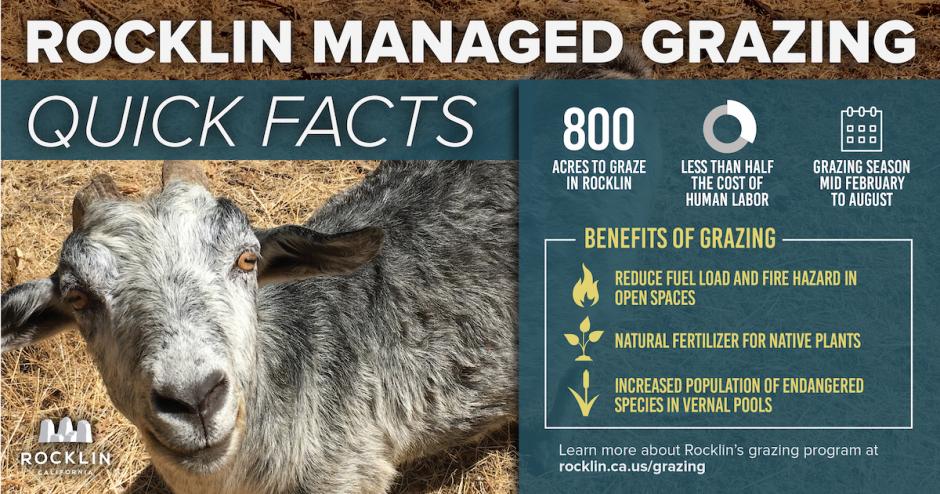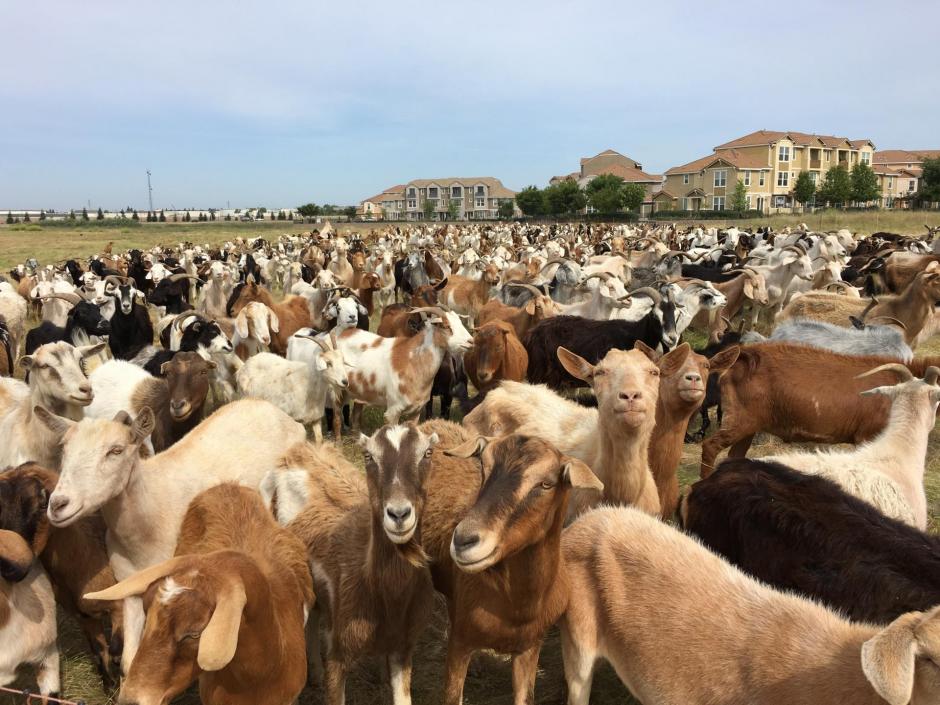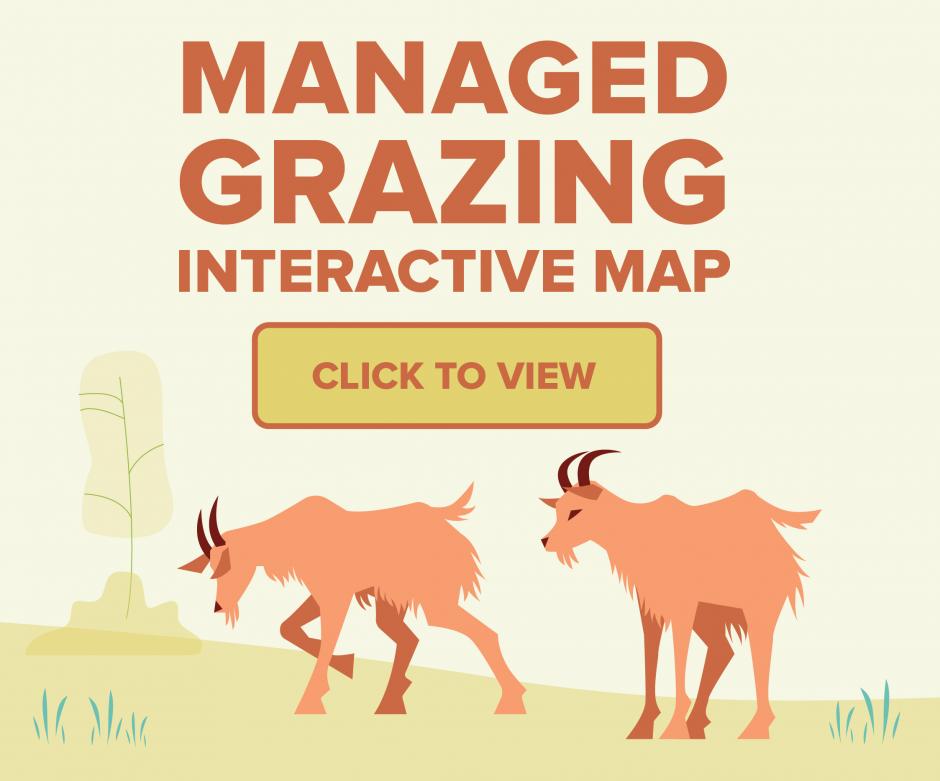Managed Grazing Reduces Fire Hazards, Benefits the Environment
Rocklin residents with property near City-managed open spaces may have seen, or heard, approximately 1,000 four-legged visitors in the land just over their backyard fence. The goats and sheep are baaaack!
The City of Rocklin uses the animals as a cost-effective and eco-friendly way to reduce potential fire fuels in open space preserves and help keep adjacent property safe.
“Compared to human labor—which is difficult to manage in the rocky and steep areas—goats can be less than half the cost while also providing environmental benefits, like fertilizing native plants naturally, limiting the use of pesticides, and increasing the population of endangered species in our vernal pools,” said Corinne Heisler, Environmental Services Specialist with the City.
Tips When Viewing the Sheep and Goats
The animals are working when they are out in the field and are not accustomed to interacting with humans. They shouldn’t be touched, fed, or taken from the open space. Children and pets should be kept away from the animals and the low-charge electric fence that keeps the goats and sheep from wandering where they should not.
Herders place the fences between private property and the animals, but plants (especially flowers) within two feet of the divide may be at risk of consumption. Plants should be moved, if possible, or covered until the herd is relocated.
About the Sheep and Goats In the Grazing Program
Sheep prefer to eat grass, and goats prefer drier brush, so the combination of animals works well in open spaces to clear the area of overgrown organic material.
The grazing provider, Legacy Ranching, has herders that stay on the property at all times in a company trailer. Anywhere from 800 to 1200 animals can be in a paddock at one time. The herders keep an eye on the animals and are proactive in addressing any health issues early.
Goats and sheep are susceptible to a condition called foot rot, which is similar to athlete’s foot in humans. The herders frequently check and treat the flocks for the fungus. Any animals that have been painted with a chalk-based paint have been treated. Shuffling, limping, or laying down goats and sheep are normal and are no cause for concern.
Grazing progress through the City can be tracked by viewing the online Interactive Grazing Map, which is updated frequently. Information and resources regarding the city grazing project can be found at the city’s Managed Grazing page.
Private property owners can have goats and sheep graze their property, but will first need to apply for a grazing permit from the Fire Department.
Questions about the grazing program can be addressed by the City’s Public Services department at (916) 625-5500.




